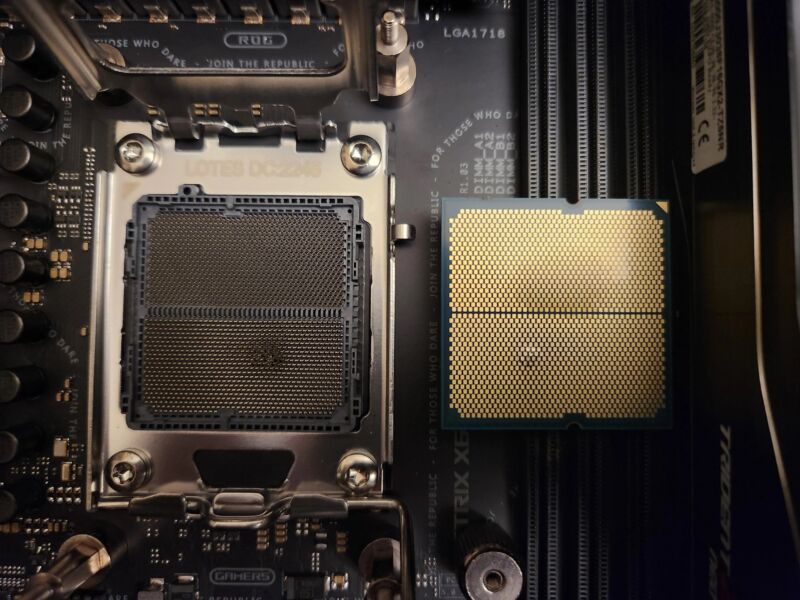
Over the weekend, users on Reddit and YouTube began posting about problems with AMD's newest Ryzen 7000X3D processors. In some cases, the systems simply stopped booting. But in at least one instance, a Ryzen 7800X3D became physically deformed, bulging out underneath and bending the pins on the motherboard's processor socket.
In a separate post, motherboard maker MSI indicated that the damage "may have been caused by abnormal voltage issues." Ryzen 7000X3D processors already impose limits on overclocking and power settings, but new BIOS updates from MSI specifically disallow any kind of "overvolting" features that could give the CPUs more power than they were built to handle. You can still undervolt your CPU to attempt to reduce temperatures and energy usage by giving the CPU a bit less power than it was designed for.
The Ryzen 7000X3D processors are set to a lower voltage than regular Ryzen 7000 CPUs by default because the extra L3 cache layered on top of the processor die can raise temperatures and make the CPU more difficult to cool. This has also made the chips much more power-efficient than the standard Ryzen chips, but that efficiency comes at the cost of overclocking settings and other features that some enthusiasts use to squeeze more performance out of their PCs.
The users reporting the issues mostly seem to be using Asus or MSI motherboards based on the X670 chipset, and many indicated that they were using the default settings for their CPUs. But the sample size is so small that we'd avoid drawing conclusions about any particular chipset or motherboard maker.
The user whose processor became physically damaged also indicated that they were not using the most recent BIOS update for their Asus motherboard when the damage occurred, which could also have resulted in too much power being delivered to the CPU. As is often the case with hardware failures like this, it may take some time before we know whether to blame a design flaw, user error, or some combination of the two. Current Ryzen 7000X3D CPU users should make sure they install the most recent BIOS update for their motherboards and keep an eye out for new versions that specifically attempt to address this problem.
We've reached out to AMD to see if the company has any additional information on the new CPUs' issues and will update this article if we receive a response.



3175x175(CURRENT).thumb.jpg.b05acc060982b36f5891ba728e6d953c.jpg)

Recommended Comments
There are no comments to display.
Join the conversation
You can post now and register later. If you have an account, sign in now to post with your account.
Note: Your post will require moderator approval before it will be visible.